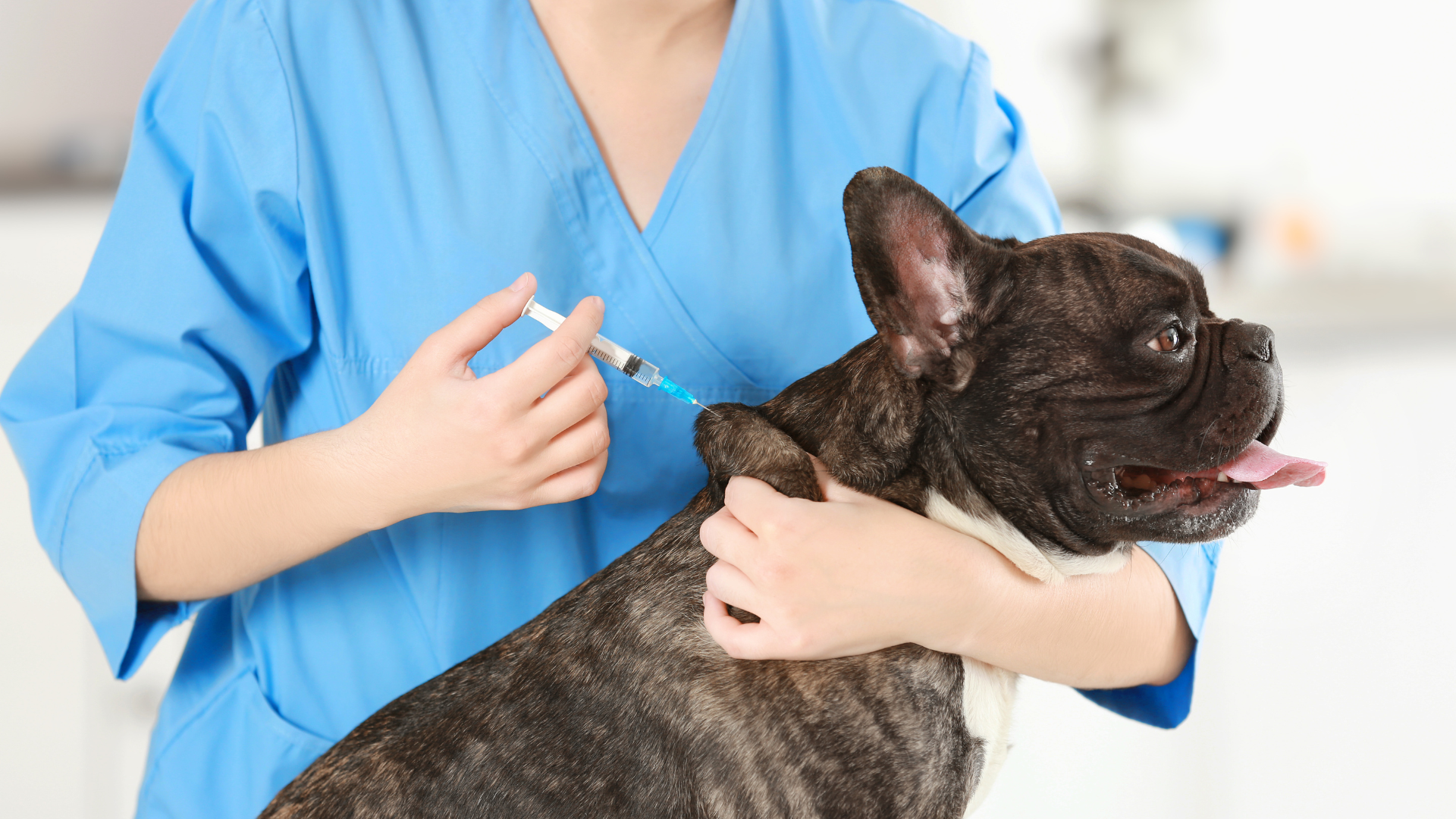A growing number of reports suggest there may be a new respiratory illness spreading between dogs, and in some cases causing serious, even life-threatening disease. What do we know about this illness and what can we do to keep our dogs safe?
What Do We Know?
Veterinarians across the US have reported clusters of atypical cases of respiratory infections in dogs. The dogs involved typically have exposure to other dogs, suggesting a contagious disease. However, unlike typical “kennel cough,” the dogs stay sick for a longer period.
What States Are Affected?
At this time, cases have been reported in Washington, Oregon, Idaho, California, Colorado, Illinois, Indiana, Georgia, Florida, New Hampshire and other parts of New England.
What Are the Symptoms?
Dogs with respiratory disease most commonly develop a harsh, hacking cough. The cough can be quite loud and severe and can keep the dog (and it’s family) awake at night. Sneezing may also occur, as well as discharge from the nose and eyes. Some dogs will develop a fever. This outbreak is unique in that the cough is persisting for a long duration, up to six to eight weeks.
What Is Kennel Cough?
For years, dog owners have been aware of a disease called “kennel cough,” a respiratory infection that typically causes coughing, and was often caused by a bacterial infection, Bordetella bronchiseptica. We now know that coughing in dogs can be due to many different infectious organisms including a variety of bacteria and viruses. In some dogs, infections with multiple microbes can occur. Canine Infectious Respiratory Disease Complex is now the preferred term for “kennel cough” in dogs as it better highlights the complex pathogenesis of the disease. Most cases are caused by viral disease and experts generally recommend not treating coughing dogs with antibiotics unless the symptoms are accompanied by fever, lethargy, inappetence and white nasal discharge, if pneumonia develops, or if the symptoms persist more than ten days.
Since the time of writing this blog, Agave Veterinary Care and Exotic Animal Hospital has seen several dogs with atypical respiratory infections. The duration of cough is lasting significantly longer than what is typical (more than a month). In addition, several other cases have been reported in Texas.
The veterinary school at Texas A&M has released some guidelines that may be helpful to pet owners:
https://vethospital.tamu.edu/announcements/

Is This a New Disease?
Currently, we don’t know if these cases are caused by a known respiratory pathogen, or even a combination of respiratory diseases. Several dogs have tested negative for the common diseases that cause cough, but tests results can come back false negative if the sample size is too small, or the timing of the testing is too late. If this is a novel pathogen, it will take time for veterinary colleges and state diagnostic labs to complete the studies needed to identify the cause.
What Treatment Options Exist?
At this time, without knowing what’s causing the disease, we don’t know what treatments may be effective. Veterinarians are reporting that the disease does not respond to antibiotic therapy, suggesting that a virus is likely. However, cases that develop pneumonia often suffer from concurrent bacterial infections, and antibiotics may still be warranted for some patients.
What Can We Do to Keep Dogs Safe?
Make sure your dog is up to date on vaccines, including Bordetella and Parainfluenza (part of the DA2PP vaccine) that we recommend for all dogs in Central Texas. If your dog goes to day care, grooming, boarding, training classes, or dog parks, consider also vaccinating against both strains of canine influenza (H3N8 and H3N2). Ideally, you want your dog vaccinated at least a week before being around other dogs.

What about the upcoming holiday season? Is it safe to board my dog while I’m traveling?
Your dog needs a safe place to stay while you are out of town. We are monitoring the situation closely, but no cases have been reported in Texas and we have not seen an increase in the number of dogs with upper respiratory infections, or in the severity of their symptoms locally. Boarding your dog at a high-quality boarding facility is still reasonably safe, especially if your dog is healthy. If you need to board your dog, stick with a reputable facility that requires all dogs to be up to date on core vaccinations.
Sources:
“Canine Infectious Respiratory Disease Complex (Kennel Cough).” AVMA. https://www.avma.org/resources-tools/pet-owners/petcare/canine-infectious-respiratory-disease-complex-kennel-cough
“Canine Infectious Respiratory Disease in Oregon” Oregon Veterinary Medical Association. December 6, 2023. https://www.oregonvma.org/news/reports-of-severe-canine-infectious-respiratory-disease-in-oregon
Larkin, Malinda. “Oregon Dealing with Respiratory Illness Incidents in Dogs; Causative Agent Remains Unknown.” AVMA News. November 17, 2023. https://www.avma.org/news/oregon-dealing-respiratory-illness-incidents-dogs
Lappin, M.R., Blondeau, J., Boothe, D., Breitschwerdt, E.B., Guardabassi, L., Lloyd, D.H., Papich, M.G., Rankin, S.C., Sykes, J.E., Turnidge, J. and Weese, J.S. (2017), Antimicrobial use Guidelines for Treatment of Respiratory Tract Disease in Dogs and Cats: Antimicrobial Guidelines Working Group of the International Society for Companion Animal Infectious Diseases. J Vet Intern Med, 31: 279-294. https://doi.org/10.1111/jvim.14627
Stone, Will. “Veterinarians say fears about ‘mystery’ dog illness may be overblown. Here’s why” NPR, Morning Edition. December 2, 2023. https://www.npr.org/sections/health-shots/2023/12/01/1216209026/dog-respiratory-illness-mystery-cause-symptoms-research
Sacca, Paul. “Mystery Respiratory Illness in Dogs Spreading Across the Country, Veterinarians’ Advice to Avoid Potentially Deadly Disease.” Blaze Media November 20, 2023.
Dr. Sarah Miller is a small animal and exotic companion animal veterinarian at Agave Veterinary Care and Exotic Animal Hospital in Leander, TX just outside of Austin. She is dedicated to compassionate pet care, exceptional customer service and communication, advocating for independently-owned veterinary practices and their teams, ongoing continuing education, and exceptional medicine.
